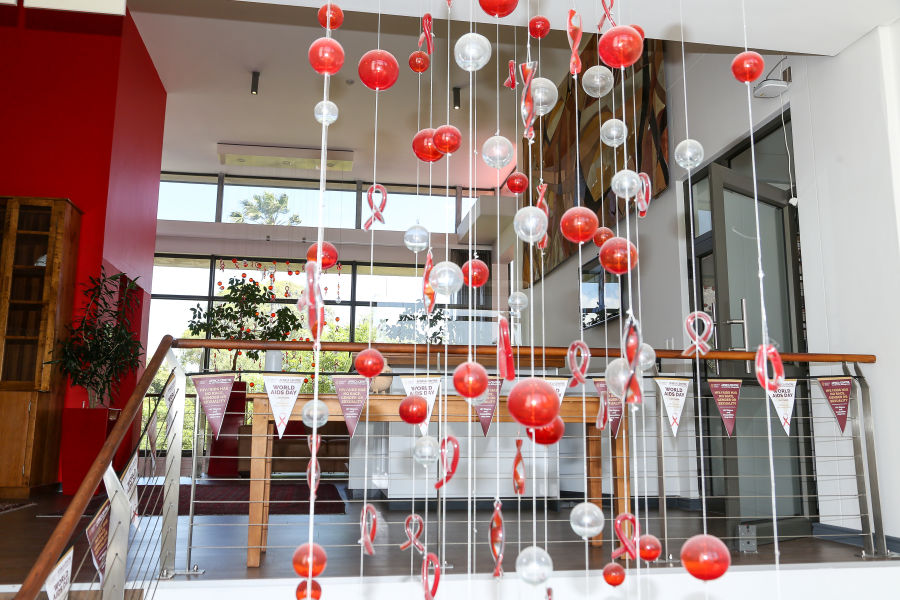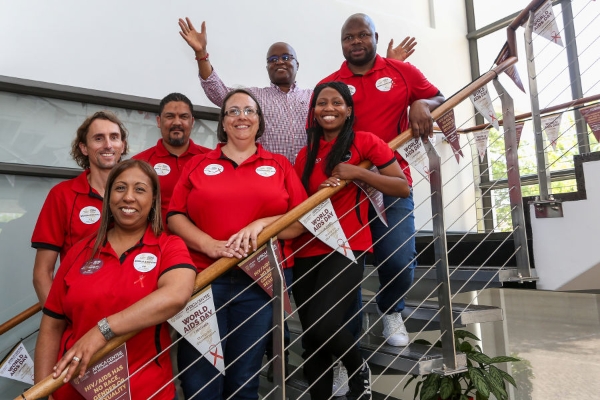

COVID-19 has taught us many lessons. One of the most important ones was the reminder that the impact of any disease that operates at a pandemic level goes far beyond healthcare. It affects how we operate in our communities (and what we do), the way we work, our freedom to make certain choices and the state of our finances (from an individual and family level to the global economy).
The Africa Centre for HIV/Aids Management has applied this multifaceted lens to the construction and presentation of its Postgraduate Diploma in HIV/Aids Management since 2001 – and the centre continues to adapt the programme to stay relevant. During the week of 6 February, the team welcomed the 2023 intake of students at the annual summer school.
Since this flagship programme was first presented 23 years ago, more than 5 000 students from over 40 countries have completed the course. This year, more than 70% of the students are women, reflecting the centre’s commitment to contributing to gender equality, one of the UN’s Sustainable Development Goals (SDGs). The Africa Centre’s work also speaks to other SDGs: good health and wellbeing, quality education, decent work and economic growth, and reduced inequality.
A holistic look at this pandemic
The purpose of the summer school is to provide students with an outline of the programme and to introduce them to some of the modules, lecturers and other role players in the field of HIV and Aids. The lecturers are carefully sourced by the Africa Centre team for their specialist expertise in specific fields.
“The summer school gives students a good overview of various issues relating to HIV and Aids and how these are interlinked, providing them with deep insight into the work that lies ahead,” says interim director Dr Munya Saruchera. In this context, the students’ diverse professions are encouraging – while there are doctors and nurses who enrol, students also include teachers, human resource managers, government officials, church ministers, lecturers, office administrators and social workers.
The keynote address was delivered by Dr David Parirenyatwa (president of the Society for Aids in Africa), whose passionate plea for rededicating efforts and resources to fight and ultimately end the pandemic by 2030 set the tone for the week. “This was an apt reminder of the value and critical nature of the course,” Saruchera said.
The impressive line-up of speakers that followed addressed the practicalities of managing HIV and Aids from every angle. With the drastic changes to the world of work in recent years, two labour specialists from the International Labour Organization (ILO) shed light on HIV and Aids in an organisational context.
Dr Jenika Gobind from Wits Business School and Prof André Roux from Stellenbosch University’s Business School offered valuable insights on the business impact as well as the macro- and socio-economic impact of HIV and Aids. Roux painted a sobering picture of how the pandemic continues to inhibit growth and broad-based socio-economic development in Sub-Saharan Africa: “For a continent that has to contend with limited financial resources to meet basic needs, the added challenge of HIV and Aids diverts resources from spending on education, training, infrastructure, food security and the like.”
Students could also listen to Dr Tlaleng Mofokeng, the UN’s special rapporteur on the right to health, on the topic of sexuality and gender inequality. Other sessions included mental health and wellbeing, epidemiology, the role of culture and therapeutic management. The online format makes it possible for all sessions to be recorded for easy reference throughout the year.
Mobilising communities and a united front
Community mobilisation plays a vital role in harnessing individual and community strength to deal with current and future pandemics. Representatives from the Health Promotion South Africa Trust (HPSA) and the Community Chest shared information about community mobilisation in an HIV/Aids context. The HPSA’s programme development officer, Chipo Zininga, is an MPhil student at the centre. “That’s the kind of role we want to see our students play, and we support changemakers like Chipo all the way,” Saruchera said excitedly.
The level of interaction and support between students, including the 2022 graduates who shared advice and tips, was one of the highlights of the week. “The student-to-student interface is a critical aspect of learning and a well-tested approach that simplifies issues creates a degree of empathy and eagerness to learn from those who have walked the same path successfully. The zealous engagement among our student community at the summer school is a wonderful representation of the collaboration that will be critical to bringing an end to this pandemic,” Saruchera concluded
The Africa Centre team members guide and support students on navigating and completing the course successfully. From front to back on the photo above are Bianca Jacobs, Dr Burt Davis, Anja Laas, Rialdo Alexander, Marchelle Tony, Dr Munya Saruchera and Fanyane Chabalala.
